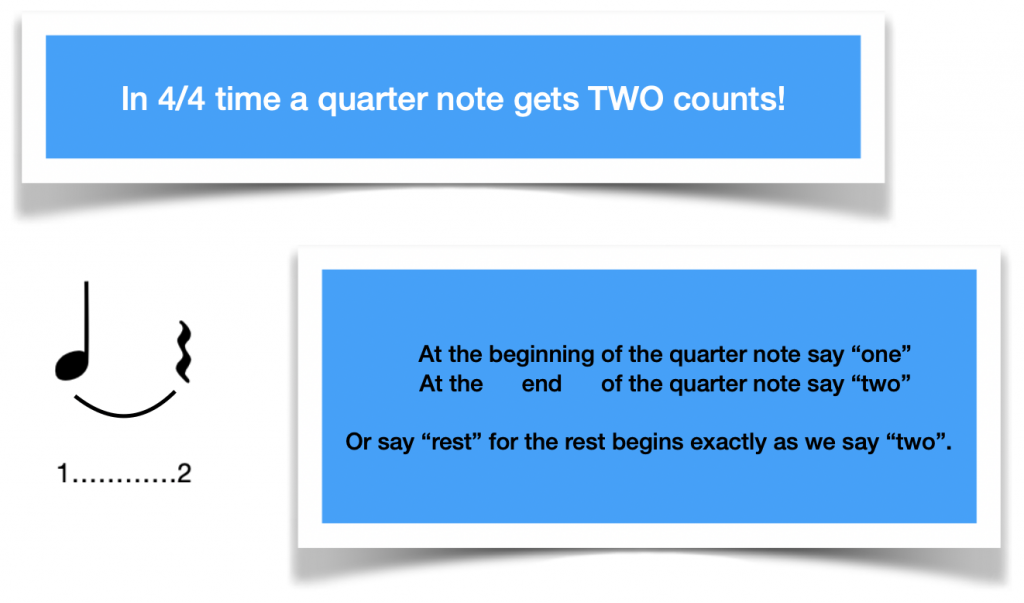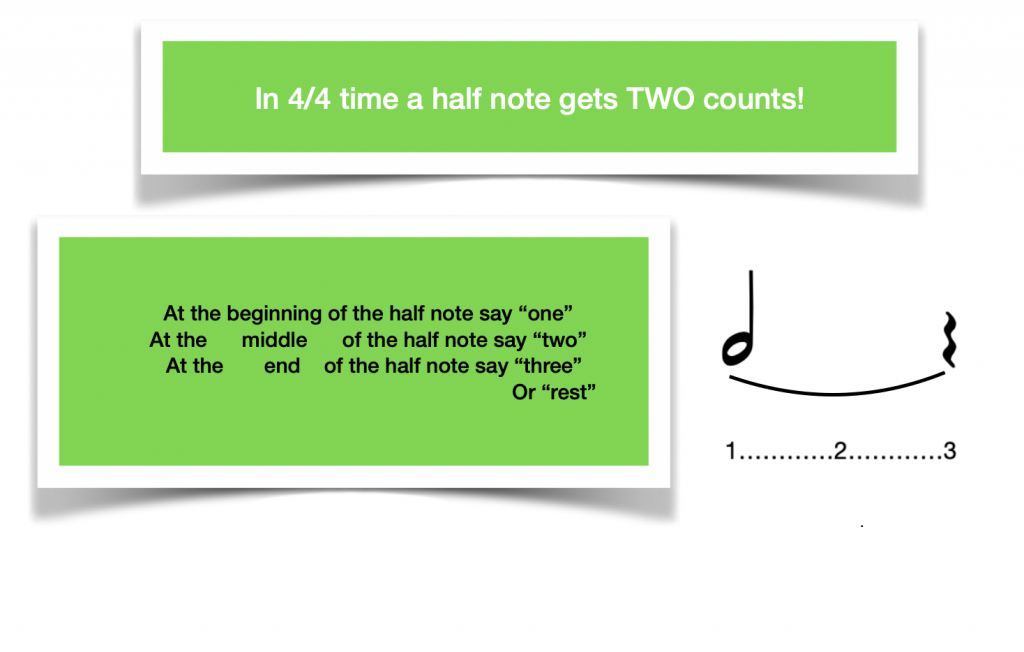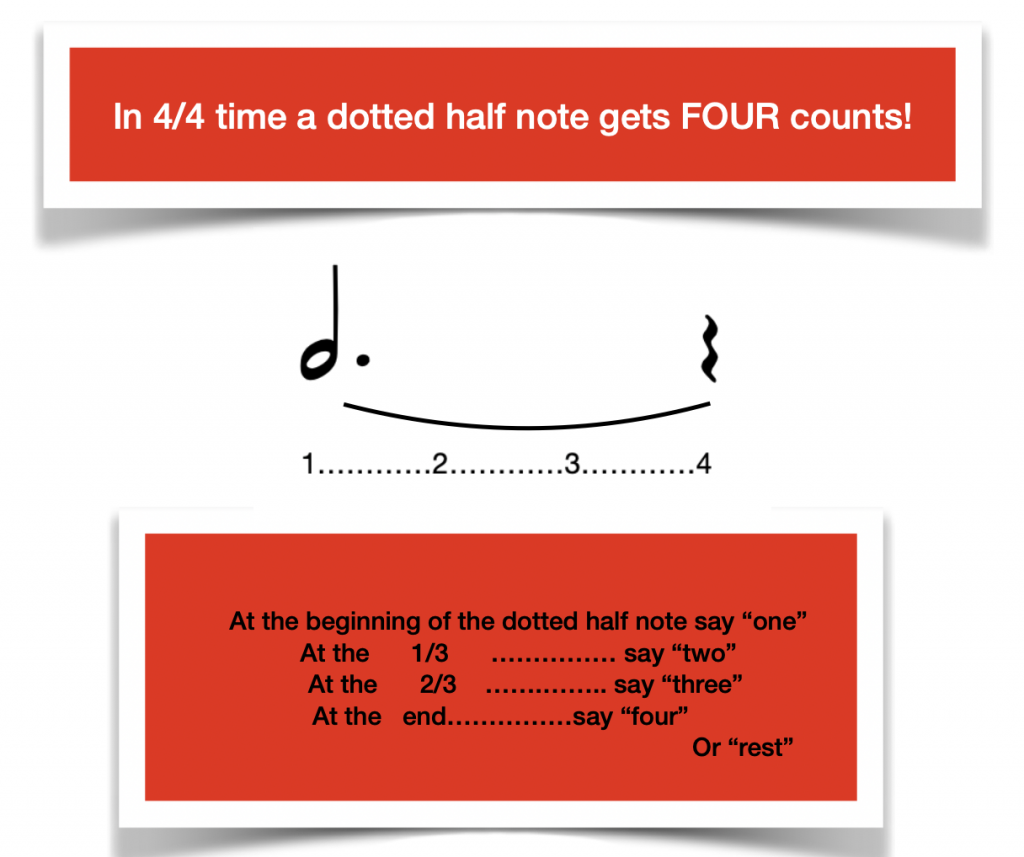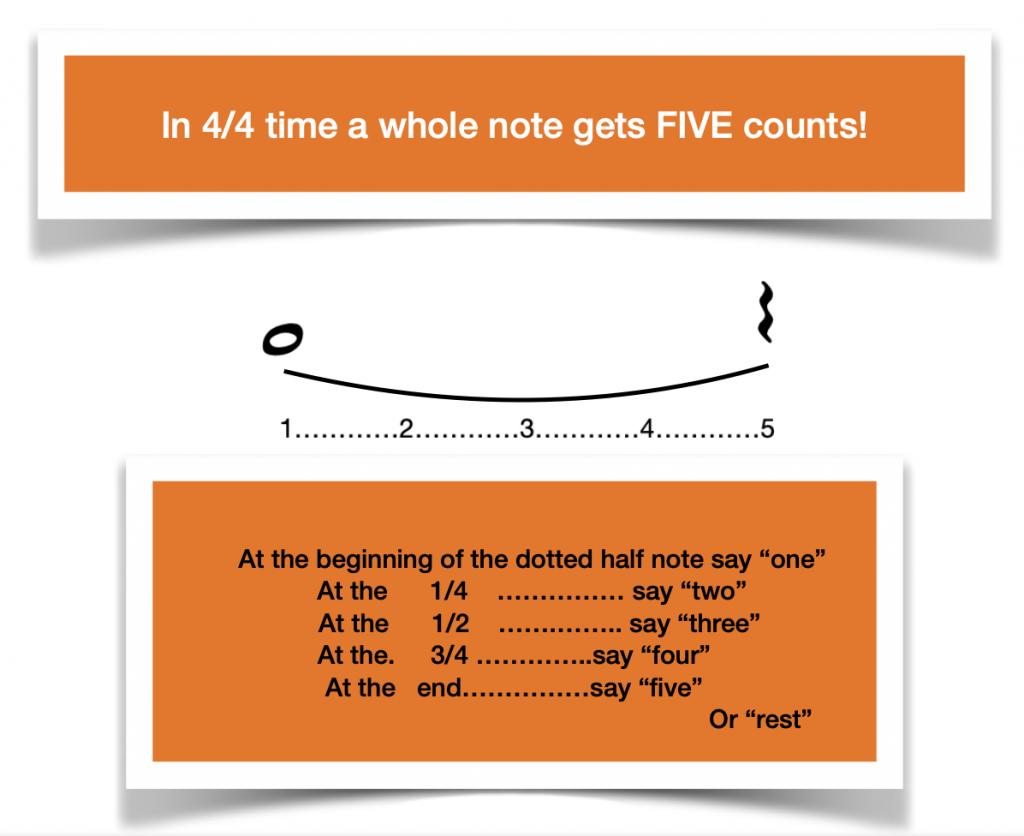Introduction
In music, there are many traditional ideas or concepts that have been taught and passed down through the years that are only “half-true”. This series of ideas, developed by H.E. Nutt, co-founder of VanderCook College of Music, seeks to make you think of improved ways of teaching the student. His concept was that “why do we teach “half-truths”, only confusing the student and interfering with their progress?” If we teach the student exactly what the concept means from the beginning, we will eliminate the long term confusion and so when the student progresses, they will do so without questioning the validity of what was taught in the first place.
This series can be “controversial”, so proceed with caution…
Series Two
FULL VALUE of NOTES

Answering this question, most students say,
“A quarter note gets ONE count”
THIS is a HALF-TRUTH!
The reason it is a half truth is for a couple of reasons. The first is, there is a difference between a COUNT and a BEAT. A COUNT is a number, and the BEAT is the distance BETWEEN two numbers. If you think of it this way, what follows will make more sense.
The quarter note does receive ONE BEAT, however, sometimes this is confusing to students at first. All notes have a beginning and an ending, and using counts is like using the ruler. However, when you use the ruler, it actually starts at ZERO, not one. In music we start at ONE, not zero. The counts are measuring the beats.
The main idea of this half truth is to get students to understand that they need to hold the notes full value, from start to the end because when you don’t we always hear much shorter notes being played.

Think of notes followed by rests as being tied to the rest. The tone must be carried TO the rest, but not INTO the rest, or past the rest.
Then in a series of notes the first note typically ends when the second one begins, unless there are styles, but remember this is for the beginning of learning how to count the note lengths.




If you start the beginner with this idea, they will typically hold out their notes full value and not get in the habit of ending early.






